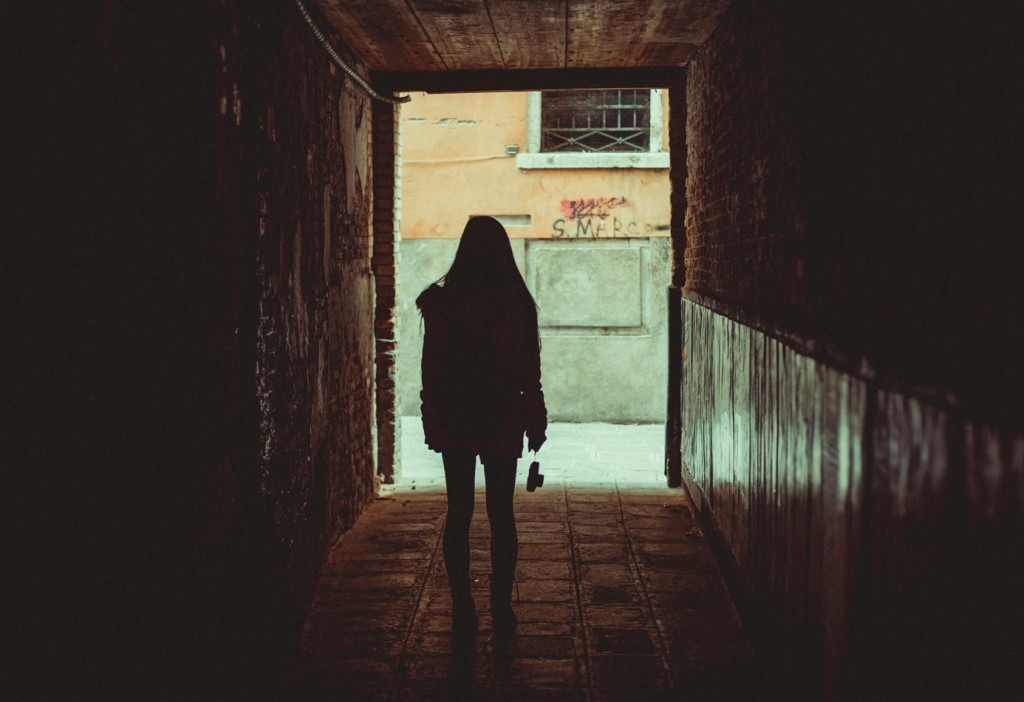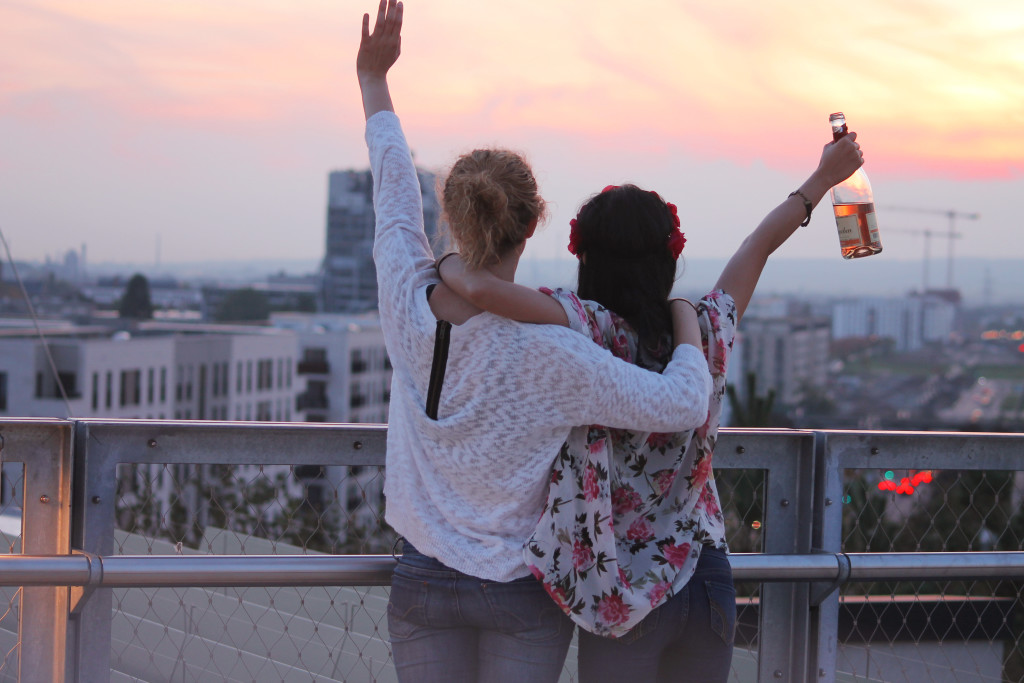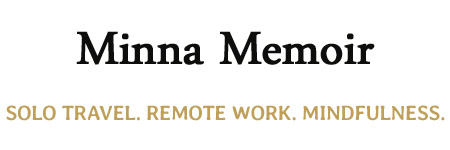Minimalism. What does it actually mean? With increasing frequency, one reads in headlines and on social media platforms that less is more and that a minimalist lifestyle brings more time, money and inner peace.
On the internet, following definitions of „minimalism“ can be found:
It is marked by clarity, purpose, and intentionality. At its core, minimalism is the intentional promotion of the things we most value and the removal of everything that distracts us from it. It is a life that forces intentionality. And as a result, it forces improvements in almost all aspects of your life.“
– Becomingminimalist.com
– Wikipedia.org
When the Boundaries Between „Necessity“ and „Desire“ Become Blurred
Certainly you are familiar with this situation: You’re going to a supermarket to buy two or maybe three things that you have noted down before on a buying list. Though, shortly after you entered the supermarket, a bazillion things come into your mind that you might need. Standing at the checkout point, there is everything in your shopping cart – except for the things you really need. You feel overwhelmed and stressed, but you tell yourself that it’s all right. Next time, you’ll just buy less.
These are typical everyday moments where the boundaries between „I really need something“ and „I feel like buying something“ become blurred.
In a buying frenzy, it’s easy to lose control. We buy a new sweater which looks nearly the same as our old one. We’re starting to persuade ourselves that we’ll put some money back next month or will work overtime. We get rid of some bills, but the bad conscience stays. While our wardrobe is bursting at the seams, our purse is yawningly empty. And we know that our purchased luck is not long-lasting. It doesn’t feel all right as well.
Will Rogers once said:
“Too many people spend money they haven’t earned, to buy things they don’t want, to impress people that they don’t like.”
Unwillingly we admit it, but there’s a spark of truth in that. Do we really own as much clothes only because we find them comfortable? Would we really wear them at home in exchange for our cozy sweatpants? Would we get ourselves ready every morning if we were all alone in the world? Would we need all the fancy stuff in our homes if we hadn’t discovered anytime pictures in glossy magazines?
I don’t believe so.
Advertisements and Idealized Online Construction of Identities Arouse Artificial Needs
„Advertising is dangerous. It has overtaken our dreams.“
– Frederic Beigbeder
We are exposed to a daily information overload and overstimulation that push our true necessities into the background. Aggressive marketing strategies have an underestimated influence on our subconsciousness which leads not only to an idealization of our personal concept of life, but also arouse needs that haven’t exist before.
If we’ve been yearlong opponents of drainpipe jeans, this changes abruptly with mediated trends of the fashion industry. If we’ve never gotten the idea to combine sneakers with a dress, they nowadays belong to our everyday life as the morning walk to the toilet.
As soon as we’ve seen trends often enough, we are convinced that we need them.
 Photographer: Talkasia
Photographer: Talkasia
Moreover, the use of the internet leads to a distortion of our true needs and our self-concepts. The constant interplay between self-perception and how others perceive us, between idealising life and reality often leads to dissatisfaction and the feeling that we always miss something. Suddenly, all the things we could be proud of are not enough anymore. Too often, we’ve compared ourselves to others who actually feel the same way as we do.
A Minimalist Lifestyle Means Above All to Consume Less and to Live More Consciously
I believe there are no exact rules for a minimalist lifestyle since everyone should be able to decide for themselves which road of life they would like to pursue. Yet, minimalists are in agreement with one thing:
A minimalist lifestyle can help us finding back to our own moral concepts and helps us to recognize what makes us really happy. How can we manage this?
By questioning first of all our life circumstances and habits. By asking ourselves what we want to achieve in life and how we can be more satisfied with ourselves. By reflecting on what we can relinquish.
We can’t only dedice to buy less things, but also reduce the excessive of the internet – above all social media channels. But we can also reduce the time we spend in front of the television. Be honest: How many hours do you spend daily in front of screens?
For many people, the answer will be “way too much”.
Modern Technologies simplify our lives in many areas, but at the same time, they’re distracting us from reality. How often would we have gone out if we hadn’t sat so long in front of the laptop or television? A few days without modern technologies can be very pleasant. We start to live more consciously and realize after a while, how stress-relieving it can be.
5 Reasons Why a Minimalist Lifestyle Helps Us to Live More Consciously and to Find Ourselves
1. We Gain Valuable Time
„Hedonists live from the time that others don’t have.“
– Michael Douglas
The desire to own things which we actually don’t need for our basic needs means that we have to work more. If we lower our material needs, we could work in a non full time job. We could have more time in the evening after work, before we fall exhausted into bed. We could have more time to live. Our life-bucket-list wouldn’t be so long because we had more time to fulfill our dreams.
What is the use to have a shitload of money with 65, when the rest of our lifetime has been wasted on our work that perhaps didn’t even make us happy? When we actually didn’t even have the time to think about what we really want because we’ve been always too busy.
Wouldn’t it be nice to have more time for ourselves, although we are working? Some quality time to pursue our hobbies and to satisfy our immaterial needs? More time to find out what makes us really happy and to find this happiness eventually? Certainly, there are people who work in a job that fulfills them. Nevertheless, there are enough people who earn good money with their job, but never have the time to spend it.
2. We are more relaxed and stress-free
Abundance causes unnecessary stress and overextension, while we lose sight of the simple things. In the supermarket, for example, we feel overwhelmed by the immense range of goods. Perhaps, we also own countless clothes and spend too much time in the morning to decide which outfit to wear. But also the permanent accessibility and countless courses of action discomforts us.
In order to counteract the complexity of the modern world, a minimalist lifestyle can help us reducing stress and being more relaxed in everyday life. We put our focus on the essential things and therefore save a lot time and energy. Less property means likewise less fear of loss, tidying up less, lower expenses and less work.
Also Nietzsche knew:
„Who owns less, becomes less obsessive.“
If we live a minimalist lifestyle, we start to buy things more consciously, separate out in all areas of life and live autonomous. We try too often to meet too many requirements. Not only in our professional lives, but also in our private lives. Therefore, we should make us clear that what makes us happy and what not. Whether we meet an appointment or not. To become conscious about what people are good for us and what people are not.
Have you ever tried to limit your use of modern technologies and not being accessible all along?
Always staring at our smartphones only to check if a certain person has written us or the feeling that we must directly answer to a message causes stress. Especially the use of messengers like Whatsapp leads to expectations. „Why hasn’t the person XY answered me yet, although he/she was online?!“ For my part, I don’t want to be accessible the whole time – and above all, I don’t want people having expectations of me that are yet so ridiculous.
3. We become less financially dependent
Have you ever thought about how much money you would save if you dealt more consciously with your finances each month? I love to buy food whenever I’m leaving the door, even if I’ve already prepared some food at home. If I had my compulsion better under control, I would save at least 50 to 80€ per month… and that would be between 600 and 960€ in a year. Maybe you are food monster like me and familiar with this situation. . ;)
If you have ever been in debts, you certainly know that it’s a terrible feeling to be dependent on some financial aid.
In order not to come into this financial dependency, there’s only one thing that helps: to spend less money.
An easy advice that leads to bigger savings and financial independence. When the chips are down, you will have any time access to your financial reserves. Or maybe you can spend your money to some useful investments. Those that are pushing you forward and give you a good feeling in the long-term.
4. We become aware of what makes us really happy
When asking people what they expect from life, the answers tend often to be „success“. But what does success mean? Many people associate success with a career and wealth in order to fulfill their own desires. Material desires (e.g. a huge home, expensive cars) and immaterial desires (e.g. traveling, living more unconcerned).
If the main focus is on material needs, I’m asking myself whether material things can make us really happy or if there’s more behind that. For example, what’s behind the intention to drive an expensive car? Is it really about the fun factor or do I want to gain more social recognition?
We can question more often our intentions and analyse them. We can ask ourselves, what makes us really happy: The property itself or is it about far more personal?
Materiel goods distract us from self-reflection, although self-reflection is very important to find out our personal meaning of „happiness“. Nevertheless, because we’re scared to deal with our sorrows and weaknesses, we rather buy our ilusionary happiness which only lasts a few days.
Reducing our expenses and concentrating on our true needs helps us to find ourselves and to be less distracted.
5. We have more money for non-material things
What do I mean with exactly by „non-material things“? Non-material things are for example activities such as traveling, join activities with friends (e.g. theme parks, wellness days, bar evenings) or also the support of charitable organizations through donations.
Those are expenses that bring us lovely memories which can make us really happy. We’re able to gain new experiences and improve ourselves. Or which give us a good feeling because we make a positive contribution to our world.
For me, such expenses are far more valuable than to spend my money for material goods. Through traveling, I’ve experienced unforgettable memories which aren’t replaceable with any material goods.
Conclusion: A Minimalist Lifestyle Leads to a More Conscious Lifestyle and Helps Us to Find Ourselves
„It takes courage…to endure the sharp pains of self-discovery rather than choose to take the dull pain of unconsciousness that would last the rest of our lives.“
– Marianne Williamson
In hectic everyday life we often lose sight of the small and beautiful things. The permanent information overload causes stress and sometimes leaves us no time to take a breath. A minimalist lifestyle, however, helps us to stay focussed on the essential things we really need, so that we have more time for ourselves. It helps us to find out what we really want, what makes us really happy.

Nevertheless, everyone has their own definition of a minimalist lifestyle. There are no rules how you can live a minimalist lifestyle. For me, it would be too much to live out of a small suitcase because I love having a small appartment with all the things I love. It feels awesome, however, to sort out things you don’t need. Try it as well, it will feel awesome! :)
„Minimalismis not defined by what is not there but by the rightness of what is and the richness with which this is experienced.“
– John Pawson

13 comments
If you look at it, really our basic needs are quite minimal, it is the frills packed on by years of consumerism which have obscured the boundaries between what is necessary and what is not. If you realize this and let go the frills, life becomes that much more easy, less stressful and more enjoyable.
True words, Voyager. As a child, it needed not much to be happy. But as we grow up, our needs become more and more demanding. Certainly, this is to a certain extent important and belongs to a part of growing up. On the other hand, our expectations ar often so high, that we get blind for the simple things in life.
However, through traveling, I always realize how less it needs to be satisfied. Sometimes, it appeared to me that people in poorer countries are much more balanced than people from wealthier countries. When we travel, we don’t need much either. It’s beautiful to realize that all the things you need in life can be packed into one backpack! ;)
Best regards!
So agree with you. One of the finest blogs I have seen in a while!
Hey Abhinav,
thanks for your kind words. I am glad to hear that. :)
You had me at #4! Great post, thanks for sharing :)
I completely agree, there are so many benefits to a minimalist lifestyle and I love your thoughts on how it can improve our lives – thanks for sharing!
Hey Rachel, thank you for your kind words. I’m glad that I could inspire you with this article!
Best regards,
Mimi
Great information! I have been working on this very thing lately.
I totally agree! I’ve been paring my life down in a lot of ways trying to free myself from so much stuff! The clutter kills you.
Nice experience. Very inspired for a travel blogger like me. Tks for making this article.
Thank you! :)
Excellent and well thought out article! Wish more people would take the time to read this! Life is a lot more than just gathering as much money and material items as you can before it’s over :)
Hey Robert,
thank you for taking your time to read my article! :) I agree and I’m sure most people think the same. Materialism is just a distraction from all the things that could make us really happy. It just might be tough to figure out what makes us deep inside happy because this would mean that we have to question values that we’ve knownour whole lives.
Though, I think we’re living in an age where always more people are striving for a more minimalist life. It’s very encouraging to read more about this topic and even different lifestyles. :)